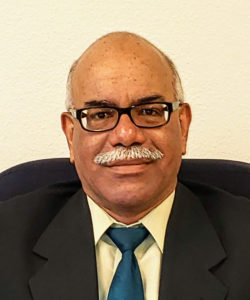or keep pressing Tab key no navigate
Dear Future-Physicists,
Welcome to the Department of Physics at Texas Southern University. We have a small, yet energetic group of physics professors in our department, consisting of 5 faculty members and usually 2–3 adjunct professors. We are actively involved in various areas of research, including: Astrophysics, Atomic & Molecular Physics, Computational Physics, High Energy Nuclear Physics and Radiation Health Physics. Physics faculty in our department participate in State, National and International Committees and Conferences. Our research is relevant and allows us to use the latest technology to obtain research grants and contracts to support both our work and students. Additionally, we are very engaged in teaching and improving the learning experience for students.
Our degree program is part of the Texas Physics Consortium (TPC) and is composed of and sustained by 7 member institutions including TSU. Students can interact with peers and professors from universities around Texas to have more research opportunities. The B.S. degree in physics is issued under the authority of the Texas A&M University (TAMU) system which governs the TPC. In effect, the coupling of TSU physics with the TAMU system provides a solid foundation in physics which is required for contemporary applications such as, medical physics, material science, biophysics, optics and photonics, patent law and quantum computers, to name just a few. Of course, TPC course work also sets the groundwork to continue graduate studies. This degree is also appropriate for those who want a strong preparation in a research science discipline before pursuing professional study in K-12 teaching, business, law, medicine, or other areas.
Physics is the basic building block for all the natural sciences and the underlying thread that connects them, while mathematics unites us with a common Universal language. Indeed our program is rigorous; however, it offers each student unique challenges and experiences for personal growth beyond the classroom. To this end, physics will both fulfill and reward the diligent student. A B.S. degree in physics will prepare you for many exciting careers in Physics proper; however, will give you an advantage in many related fields as well. Physics will certainly open many doors and opportunities in the sophisticated, yet rapidly changing technological job market of today!
The Department of Physics has various laboratories, including a High Performance Computing Lab, a Radio Astronomy Lab and two Radiation Detection Labs. Many physics majors benefit from generous scholarships offered through the department.
Now, let me share a few tips that will help you navigate our program successfully:
1. You must attend your classes. Being present and prepared to participate in class is the first step in the learning process,
2. Visit your Professors during Office Hours. Do not wait until the last few weeks of classes to get help,
3. Complete all home work assignments on time. Home work is essential to learn and master the subject,
We encourage you to visit the faculty and ask about the learning opportunities, scholarship opportunities, the quality of the curriculum and faculty, and our commitment to do everything to ensure your success.
Sincerely,
Victor Migenes,
Professor and Interim Chair of Physics
Texas Southern University
(713) 313.7390